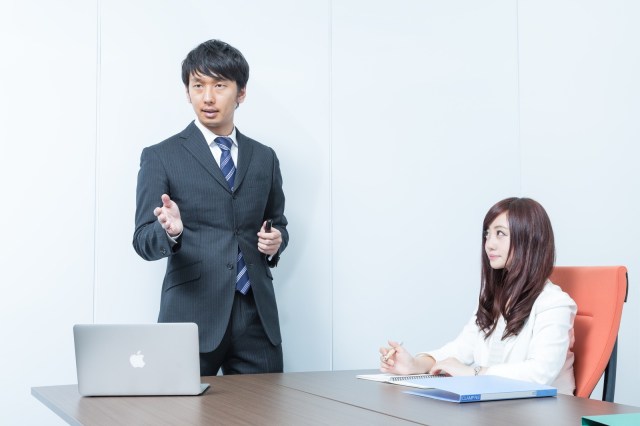
The company’s AI machine translation programs eliminate the need for anyone to speak a language other than their own, they say.
AI technology has come a long way in the last decade, becoming useful in a wide variety of fields, including cooking, modeling, and even drawing manga. But we haven’t really seen it come to such impressive lengths that it can change the nature of human interaction–at least, not until now.
Japanese company Rozetta has created an AI-powered machine translation service that completely eliminates the need for people to know each others’ languages in order to communicate. With their goal of liberating humanity from the limitations of language, they’ve been working for years to create an efficient, accurate, and flexible translation system that can be used in a variety of ways, and they’ve come close to perfecting it.
Rozetta primarily offers two different machine translation services: for written documents and for audio. They claim that their document translation service is “on-par with professional translators” and is “up to 95 percent accurate”, with coverage in over 2,000 industries. This software is used on Rozetta’s very own website, which doesn’t have a human-translated English version; after you load it up, it will automatically switch to English without changing the URL. All of the English text on their website is surprisingly natural, not anything like the kind of results you’d get from a free service like Google Translate.
But Rozetta’s pinnacle achievement is probably its “Onyaku” service, a conference speech translation tool capable of interpreting people’s speech in real time. Check out this video, which demonstrates Onyaku’s ability to accurately capture English speech, even with a strong accent, and translate it into Japanese almost immediately.
Having reached this level of accomplishment in the field of machine translation, Rozetta believes that they have managed to create a “Free Language World”, eliminating the need for individuals to learn multiple languages, or to be held back by the fact that they can only speak one. That’s why they’ve banned all of their employees from speaking any language but their native one; to communicate with staff and clients in another language, employees must use the company’s online “Free Language” services, like Onyaku, which has a mobile version as well as a PC version, and their Virtual Reality Office, which is demonstrated below with two Chinese speakers and a Japanese speaker.
▼ There’s no English in this video, but you can see how the program interprets and translates the Chinese audio quickly and efficiently, even when multiple people are speaking at the same time.
In fact, the company released a full memorandum banning employees from speaking a foreign language, which is somewhat misleadingly titled “Order to Ban English [Order to Ban Foreign Languages]”. It was presumably sent to all employees, but it was also published as a press release for all to see. It declares that the rule was put into place in order to alleviate any limitations based on language that can affect productivity or cause strain on employees. Those who work hard but can’t speak English and as a result get sidelined, engineers who are good at what they do but can’t speak Japanese, staff who can speak a moderate amount of English but only understand about half of what happens at a meeting, and those who can speak a foreign language but are forced to do translation work instead of their actual job should all find that they are no longer limited by their language abilities with Rozetta’s Onyaku service.
By eliminating the need for employees to have to speak a foreign language, Rozetta appears to believe they will level the playing field, giving all employees equal opportunities to work efficiently and smartly without worrying about language barriers.
▼ According to the website, Onyaku also works on most online meeting services like Zoom, Teams, and Skype, making teleworking and international business easy, too.
“It’s been a long time coming, but the dark days are over,” the memorandum says. “Just like race and gender, the ability to speak English has nothing to do with your ability to do your job.”
The news was pretty exciting for Japanese netizens, who generally thought it impressive that Rozetta’s technology has achieved such a level of competence, and were touched by the company’s policy toward multilingualism:
“So this kind of society exists, huh? It’s about 50 years earlier than I thought it would be. I wonder if we’ll be a totally ‘free language’ world in my lifetime.”
“I thought they were bad guys for a second but it turns out they’re good guys. Haven’t seen good news like this in Japan in a while.”
“This is really amazing. I’m really impressed by how straightforwardly they’re taking on this issue.”
“The return of the Tower of Babel, huh…”
“This is a world that if the electricity goes out, we’ll all die.”
It’s a marvel that they’ve managed to make it so far that they don’t need their employees to speak a specific language for the company to function, and it is pretty exciting to think of what this could mean for future international business ventures and travel. Perhaps, with any luck, we might all be able to freely communicate with people all over the world, without worrying about language barriers, within this very lifetime! Since technology like the mask that can translate eight languages is already on the market, it’s only a matter of time before accurate machine translation services like Rozetta’s are widely available to the general population in an easy-to-use format.
Source: PR Times via My Game News Flash, Rozetta
Top image: Pakutaso
Insert images: PR Times, Pakutaso
● Want to hear about SoraNews24’s latest articles as soon as they’re published? Follow us on Facebook and Twitter!



 YouTube’s AI Japanese translation calls for Jimmy Kimmel’s death on his own show【Video】
YouTube’s AI Japanese translation calls for Jimmy Kimmel’s death on his own show【Video】 Japanese mayor suddenly speaks fluent English with AI video that surprises even him
Japanese mayor suddenly speaks fluent English with AI video that surprises even him Smash Bros. creator learns he can’t tweet carelessly, fans learn they can’t trust AI translations
Smash Bros. creator learns he can’t tweet carelessly, fans learn they can’t trust AI translations Meetings and more meetings: Foreigners list the pros and cons of working at a Japanese company
Meetings and more meetings: Foreigners list the pros and cons of working at a Japanese company Foreigner-friendly maid cafe adds translation panels to Akihabara location
Foreigner-friendly maid cafe adds translation panels to Akihabara location Highest Starbucks in Japan set to open this spring in the Tokyo sky
Highest Starbucks in Japan set to open this spring in the Tokyo sky Family Mart’s Shibuya Cat Street shop hosts first-ever rescue cat photo exhibition for Cat Day
Family Mart’s Shibuya Cat Street shop hosts first-ever rescue cat photo exhibition for Cat Day Skyscraper sized Pokémon cards to appear in Tokyo all year long in Tocho projection mapping event
Skyscraper sized Pokémon cards to appear in Tokyo all year long in Tocho projection mapping event Ghibli’s Kiki’s Delivery Service returns to theaters with first-ever IMAX screenings and remaster
Ghibli’s Kiki’s Delivery Service returns to theaters with first-ever IMAX screenings and remaster Development of Puyo Puyo puzzle game for use in nursing homes underway
Development of Puyo Puyo puzzle game for use in nursing homes underway Japan has only one airport named after a samurai, so let’s check out Kochi Ryoma【Photos】
Japan has only one airport named after a samurai, so let’s check out Kochi Ryoma【Photos】 The 10 most annoying things foreign tourists do on Japanese trains, according to locals
The 10 most annoying things foreign tourists do on Japanese trains, according to locals Osaka icon loses legs, restaurant says famous crab is exhausted
Osaka icon loses legs, restaurant says famous crab is exhausted This Hakata hotel is worth a little extra thanks to its all-you-can-eat steak breakfast buffet
This Hakata hotel is worth a little extra thanks to its all-you-can-eat steak breakfast buffet These apartments are crazy-small even by Tokyo standards, and super-popular with young people
These apartments are crazy-small even by Tokyo standards, and super-popular with young people Starbucks Japan releases new sakura goods and drinkware for cherry blossom season 2026
Starbucks Japan releases new sakura goods and drinkware for cherry blossom season 2026 Naruto and Converse team up for new line of shinobi sneakers[Photos]
Naruto and Converse team up for new line of shinobi sneakers[Photos] Is Sapporio’s Snow Festival awesome enough to be worth visiting even if you hate the snow? [Pics]
Is Sapporio’s Snow Festival awesome enough to be worth visiting even if you hate the snow? [Pics] Japan has trams that say “sorry” while they ride around town…but why?
Japan has trams that say “sorry” while they ride around town…but why? Tokyo Skytree turns pink for the cherry blossom season
Tokyo Skytree turns pink for the cherry blossom season Sakura Totoro is here to get spring started early with adorable pouches and plushies
Sakura Totoro is here to get spring started early with adorable pouches and plushies Poop is in full bloom at the Unko Museums for cherry blossom season
Poop is in full bloom at the Unko Museums for cherry blossom season Shibuya Station’s Hachiko Gate and Yamanote Line stairway locations change next month
Shibuya Station’s Hachiko Gate and Yamanote Line stairway locations change next month Japan’s new “Cunte” contact lenses aren’t pronounced like you’re probably thinking they are
Japan’s new “Cunte” contact lenses aren’t pronounced like you’re probably thinking they are Japan’s newest Shinkansen has no seats…or passengers [Video]
Japan’s newest Shinkansen has no seats…or passengers [Video] Foreigners accounting for over 80 percent of off-course skiers needing rescue in Japan’s Hokkaido
Foreigners accounting for over 80 percent of off-course skiers needing rescue in Japan’s Hokkaido Super-salty pizza sends six kids to the hospital in Japan, linguistics blamed
Super-salty pizza sends six kids to the hospital in Japan, linguistics blamed Starbucks Japan unveils new sakura Frappuccino for cherry blossom season 2026
Starbucks Japan unveils new sakura Frappuccino for cherry blossom season 2026 Foreign tourists in Japan will get free Shinkansen tickets to promote regional tourism
Foreign tourists in Japan will get free Shinkansen tickets to promote regional tourism Take a trip to Japan’s Dododo Land, the most irritating place on Earth
Take a trip to Japan’s Dododo Land, the most irritating place on Earth Is China’s don’t-go-to-Japan warning affecting the lines at a popular Tokyo gyukatsu restaurant?
Is China’s don’t-go-to-Japan warning affecting the lines at a popular Tokyo gyukatsu restaurant? Survey asks foreign tourists what bothered them in Japan, more than half gave same answer
Survey asks foreign tourists what bothered them in Japan, more than half gave same answer Japan’s human washing machines will go on sale to general public, demos to be held in Tokyo
Japan’s human washing machines will go on sale to general public, demos to be held in Tokyo Starbucks Japan releases new drinkware and goods for Valentine’s Day
Starbucks Japan releases new drinkware and goods for Valentine’s Day We deeply regret going into this tunnel on our walk in the mountains of Japan
We deeply regret going into this tunnel on our walk in the mountains of Japan Studio Ghibli releases Kodama forest spirits from Princess Mononoke to light up your home
Studio Ghibli releases Kodama forest spirits from Princess Mononoke to light up your home Major Japanese hotel chain says reservations via overseas booking sites may not be valid
Major Japanese hotel chain says reservations via overseas booking sites may not be valid Put sesame oil in your coffee? Japanese maker says it’s the best way to start your day【Taste test】
Put sesame oil in your coffee? Japanese maker says it’s the best way to start your day【Taste test】 No more using real katana for tourism activities, Japan’s National Police Agency says
No more using real katana for tourism activities, Japan’s National Police Agency says Goku’s voice actress’ voice to be converted to AI for “non-acting” projects in Japanese, English
Goku’s voice actress’ voice to be converted to AI for “non-acting” projects in Japanese, English Does Japan really need company drinking parties?
Does Japan really need company drinking parties? There’s no need to care about our staff, because they’re foreigners, says Japanese maid service
There’s no need to care about our staff, because they’re foreigners, says Japanese maid service 9 ways Tokyo could become more foreigner-friendly in time for the 2020 Olympics
9 ways Tokyo could become more foreigner-friendly in time for the 2020 Olympics Nine times Japanese people got schooled on their own country and culture by foreigners
Nine times Japanese people got schooled on their own country and culture by foreigners